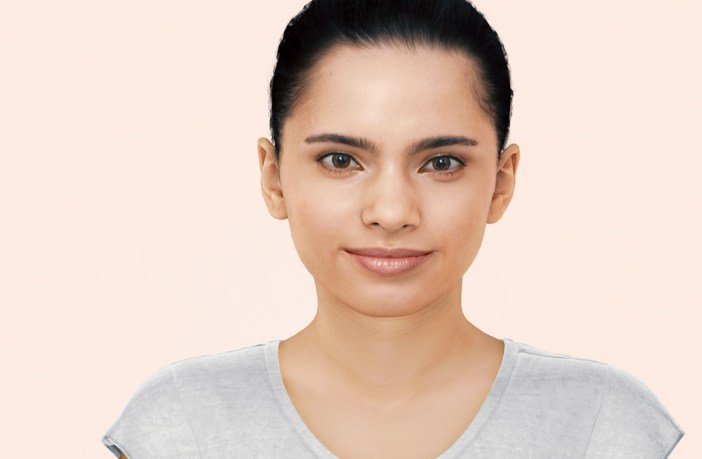
Lil Miquela (@lilmiquela), or Miquela Sousa, is one of those digital humans with a growing following on Instagram. Her account promotes “her music” and helping along the way have been celebrity friends such as The Chainsmokers who are pictured with her on Instagram.
She now has 1.7 million Instagram followers and last year was ranked among the 25 most influential people on the internet by Time magazine. It’s no wonder brands like Samsung Mobile and Calvin Klein have partnered with her.
But while Lil Miquela has been used to promote a number of brands, some brands go one step further and have created their own ambassadors.
Soul Machines is one of the companies building digital humans and its co-founder and chief business officer, Greg Cross, says we will continue to see brands embrace digital influencers as they look for innovative ways to create a brand experience for customers and fans.
He says Soul Machines’ technology creates digital humans that are able to “present personalised information in a human-like way, contextualised to the consumer rather than a pre-programmed script”.
“We like to think of them as heroes because they are here to help, any place and any time. They can evolve over time, humanising the brand across multiple campaigns, products and services.”
Yumi is one of those digital “heroes” and was built by Soul Machines for skincare brand SK-II.
Unveiled at the Cannes Lions International Festival of Creativity this year, Yumi is a one brand only kind of girl and give consumers a point of contact to ask skincare questions the moment they need.

Cross says Yumi connects with a new generation of consumers who are looking for more meaningful experiences with brands they know and trust.
Yumi lives on SK-II’s website and in-store in Tokyo.
When Yumi launched, Sandeep Seth, chief executive officer of Global SK-II, said Yumi personifies the brand’s goal to combine technology and creativity to benefit customers.
“She provides the warmth and connection of human touch in the form of a digital experience to make the overall skincare experience at home and in-store more enjoyable and compelling. We’re looking forward to customers being able to turn to her for skincare and beauty questions at any time of the day or night.”
Being able to engage with a digital human may well have its uses for those in need of answers, but, Yumi has been created with flawless skin, so should she really be the one to answer skincare and beauty questions?
Brooke Howard-Smith, chief executive of WeAreTenzing, warns of these digital humans being potentially dangerous as they present unrealistic versions of us.
“Many have already been mired in controversy with accusations of promoting unrealistic body/skin expectations or political agendas and so brands face similar or even unique challenges when partnering with them.”
And he’s not alone in having concerns over the promotion of unrealistic realities.
Jess Quinn – a fitness advocate, cancer survivor and inspirational speaker who is represented by WeAreTenzing – has presented a petition to parliament to increase the transparency around retouching of photographs of models in magazines and other visual mediums.
The petition reason, as stated on parliament’s website, is:
“To combat unrealistic body image ideals in advertising and the media, and to inspire brands and advertisers to question how they promote their products and/or services and give the consumer the opportunity to make their own decisions on what is real and what is not. A large part of today’s advertising can be detrimental to the wellbeing of young people, and people in general. A similar law has been passed in France in 2017 and I believe New Zealand needs to take a stand on this as well.”
To date, the petition has 10,919 signatures and is set to close on 31 December this year.
With the petition garnering attention, it’s no wonder Howard-Smith is unsure about brands partnering with digital humans.
“For the time being these avatars are the opposite end of the spectrum, fake, idealised, potentially dangerously unrealistic versions of us and as such the verdict is out on if I’d partner with them as a brand.”
But, could the ability to create flawless digital humans be a solution to working with real humans, who may display behaviour that brands don’t want to be associated with?
To this point, Howard-Smith points out that while digital humans won’t get drunk, they are still created by humans and their designs may be flawed.
He gives the example of Lil Miquela as early brand partners are beginning to learn the account has a political lean.
The posts are liberal and feature messages like ‘keep abortion legal’ and in a place as politically divided as America, that can be scary territory for brands.
“After all, [Lil Miquela] is the result of one, maybe two people’s decision making. Not that much safer than a standard person,” Howard-Smith says.
Because of this, he says those who are looking at partnering with a digital influencer should treat them like a human and get a good understanding of you they are working with before partnering.
But would he represent a digital human?
“We’re interested in how this next wave of communication can move future generations to improve their world around them and if this is a part of that landscape then I can’t see why not. But to be clear, we wouldn’t be representing a CGI influencer, we’d be representing a creative team building imagery that inspires people, right?”




